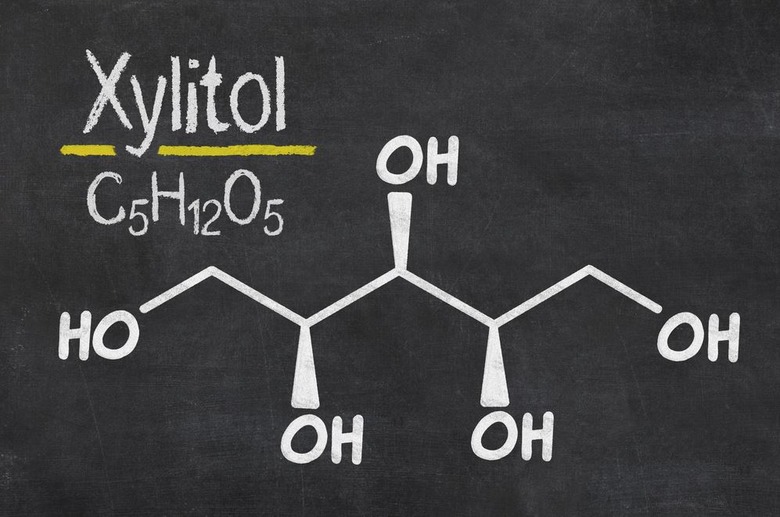This Popular Artificial Sweetener Is Actually Great For Your Teeth
Artificial sweeteners tend to get a bad rap these days, as chemically enhanced foods are shunned in favor of natural, "clean" ingredients. Some still approach artificial sugars like aspartame with caution, even though it's been shown to have no ill effects. But there's one artificial sweetener out there that has some surprising health benefits, and it might just be in the gum you're chewing right now: xylitol.
Xylitol is a sugar alcohol that's predominantly used to sweeten breath mints and chewing gum, and it's naturally occurring in the fibers of many fruits and vegetables, including berries, mushrooms, oats, and corn. Whereas table sugar is known to cause cavities, xylitol actually has the opposite effect: Due to its chemical makeup, it actually helps repair damaged tooth enamel and can prevent cavities by starving cavity-causing bacteria in the mouth. It's also been shown to inhibit the growth of certain pathogens (including strep) in the mouth and throat.
Xylitol also has some additional benefits: It has 33 percent fewer calories than table sugar and is absorbed more slowly by the body, so it's safe for diabetics. Its low glycemic index also makes it ideal for post-workout recovery; xylitol-based nasal sprays have been shown to reduce earaches in children; and tests are being done to see if it can help treat osteoporosis.
Though it's great for humans (besides a mild laxative effect if consumed in large doses), it's important to note that xylitol can be fatal to dogs because it lowers their blood pressure.
